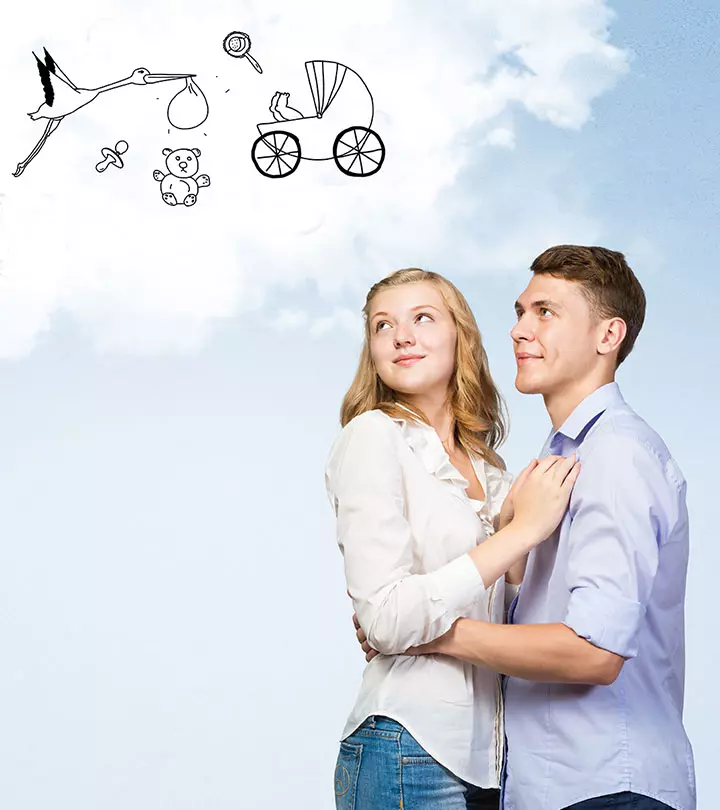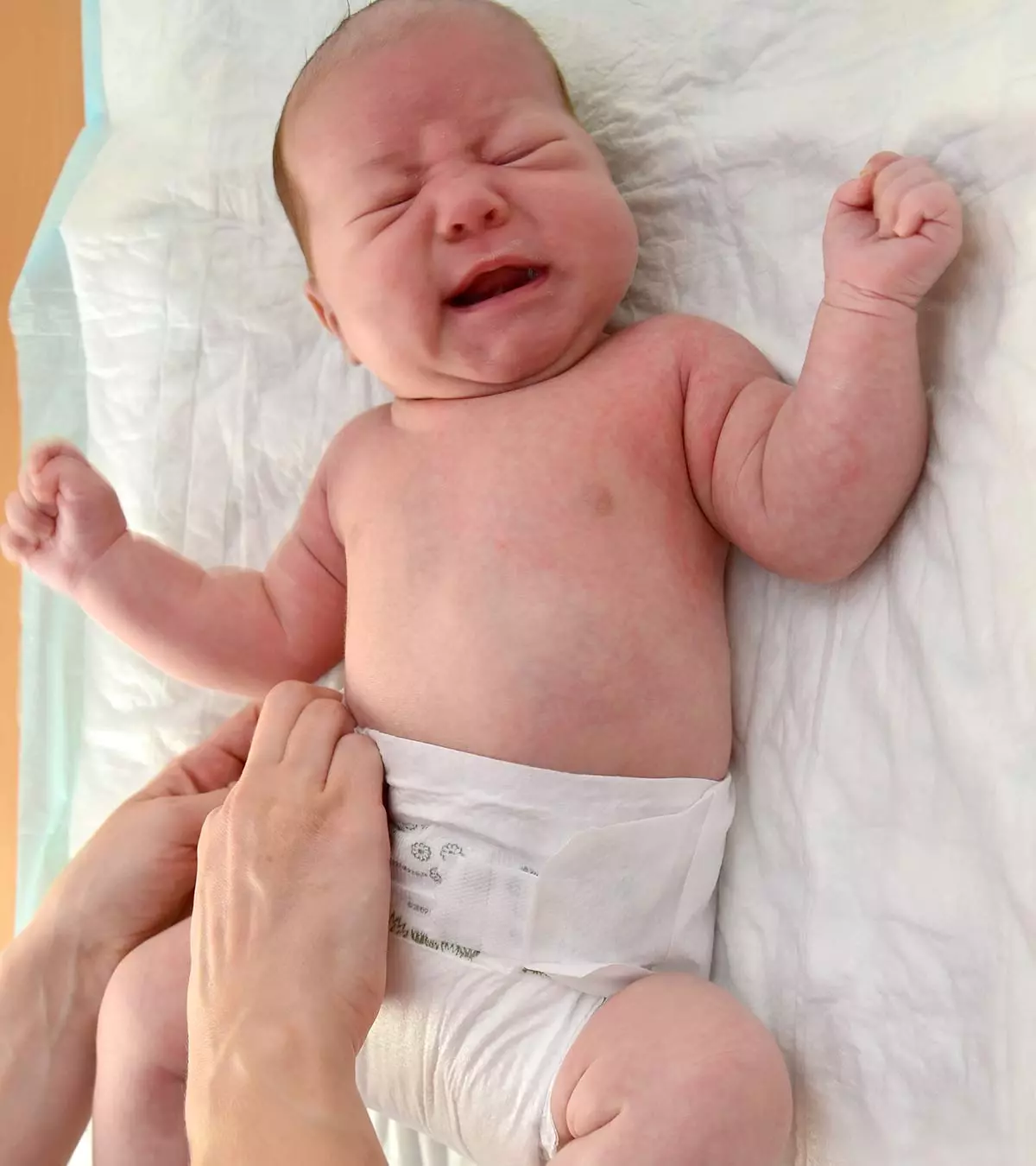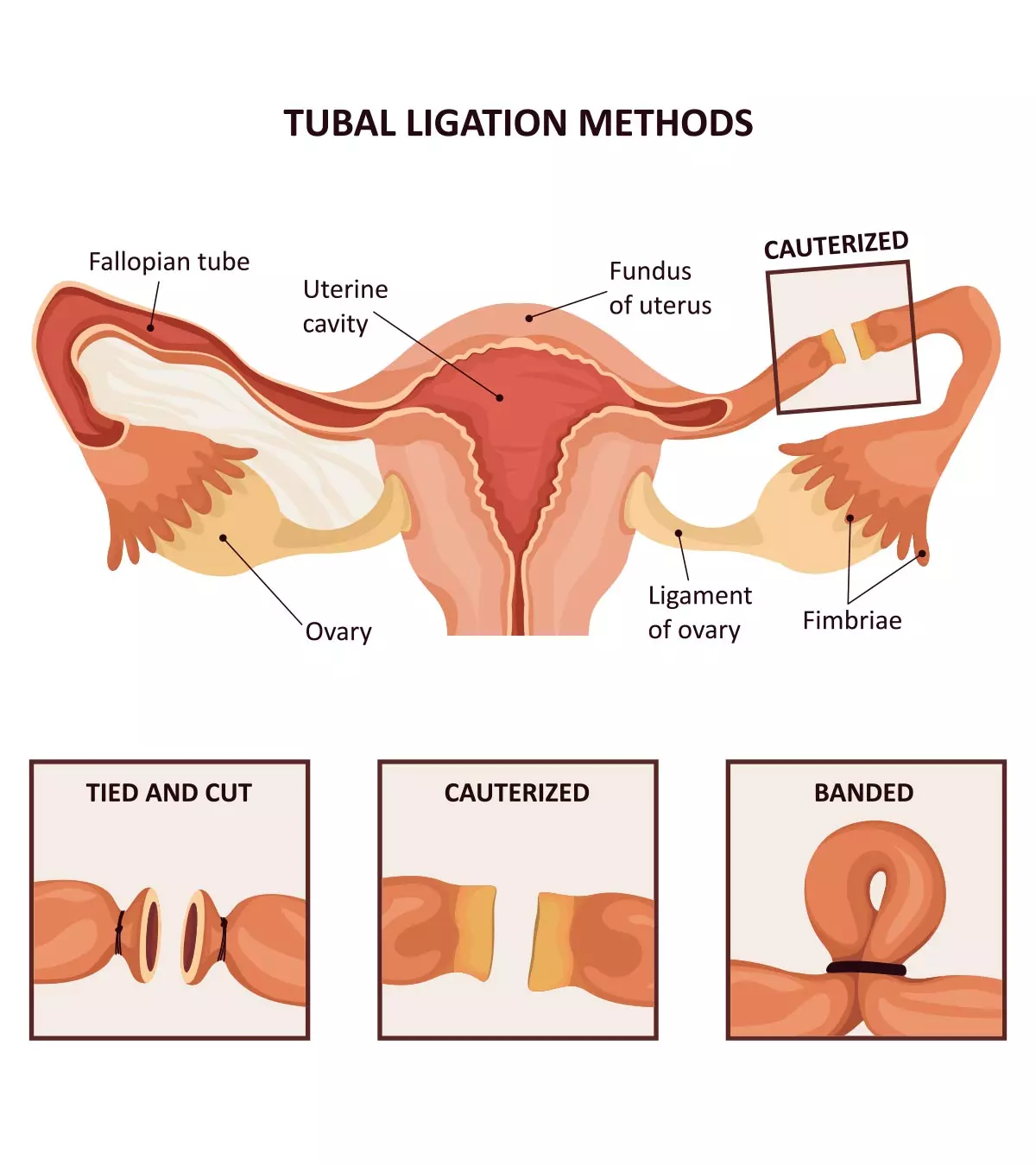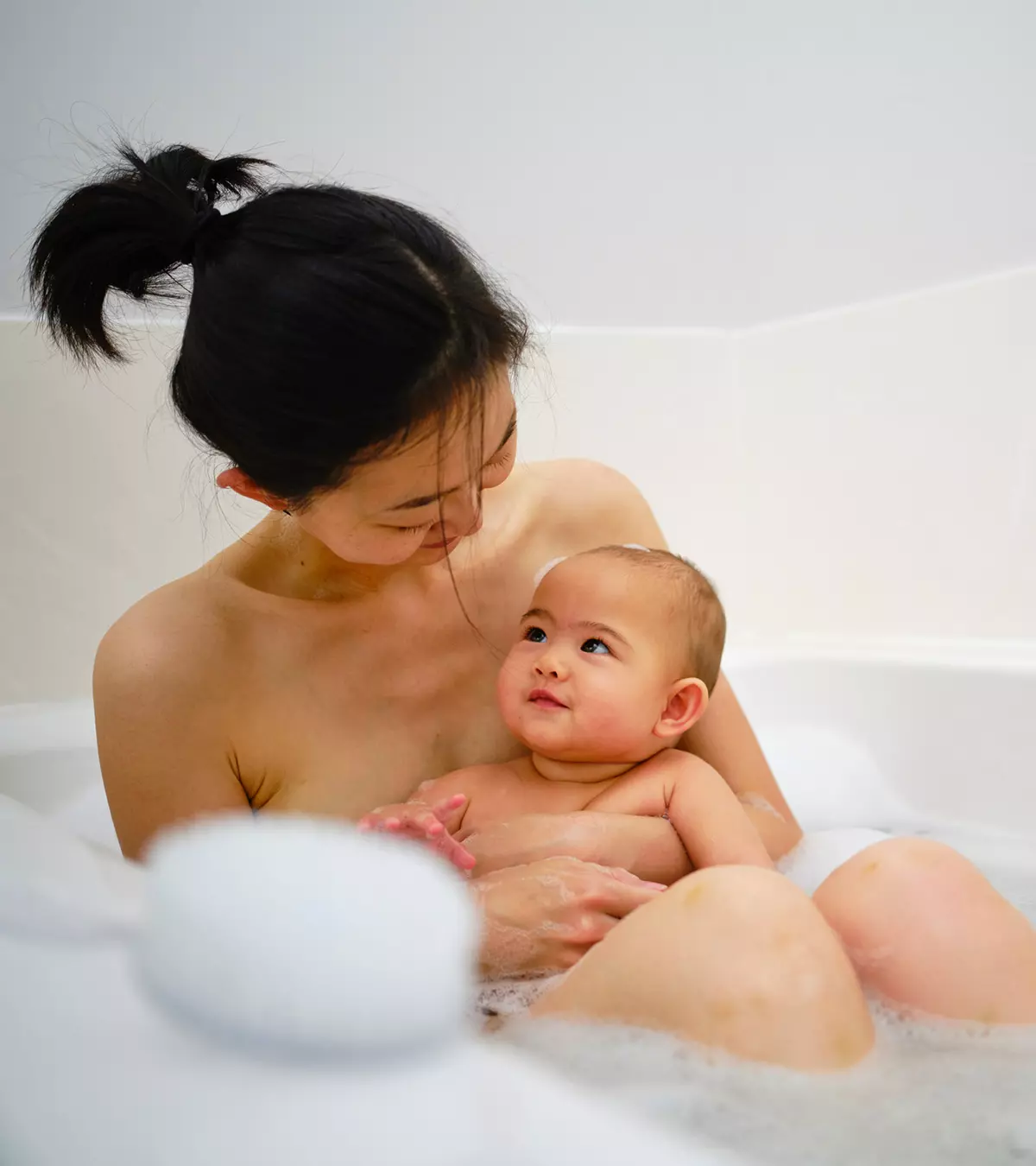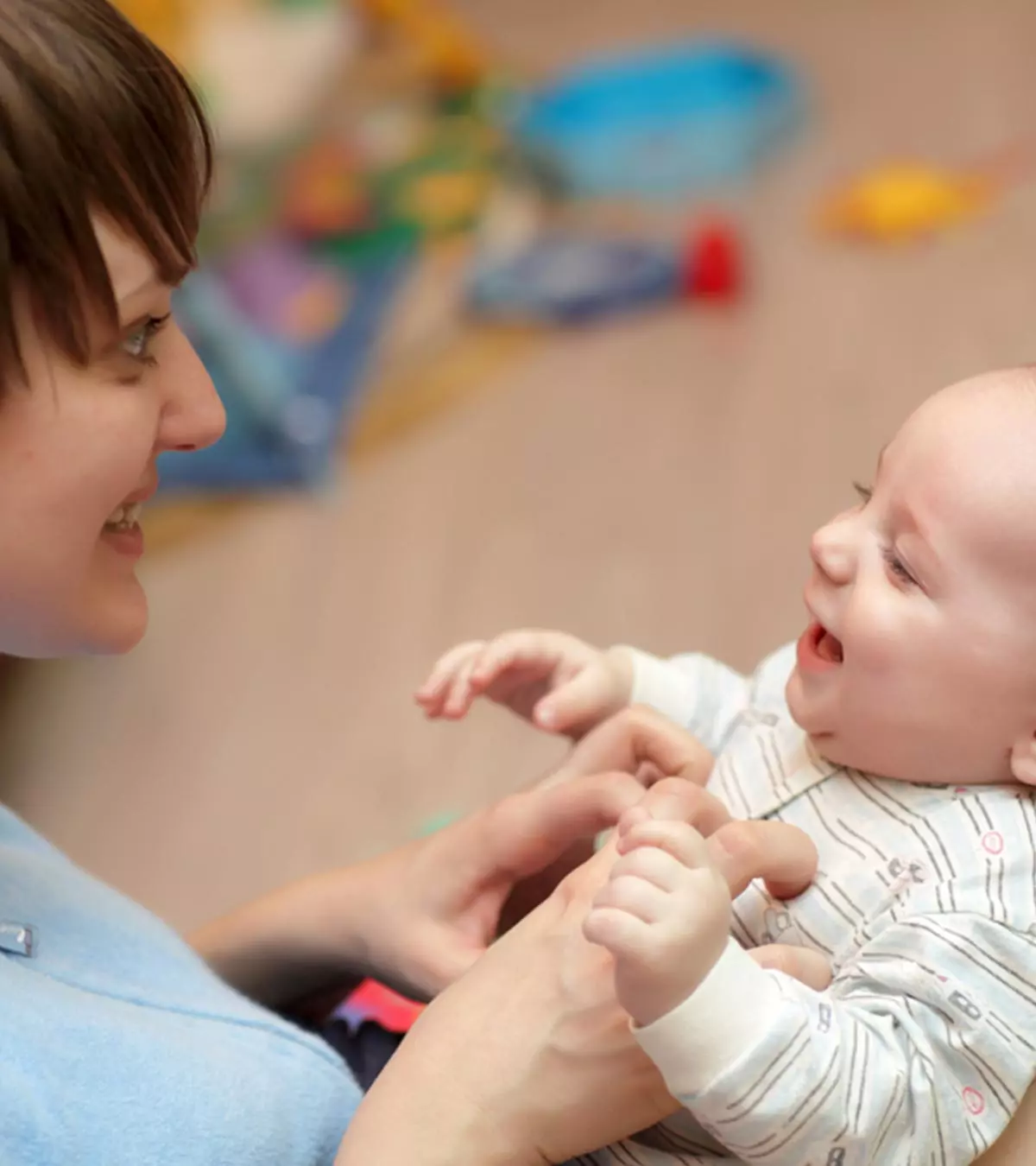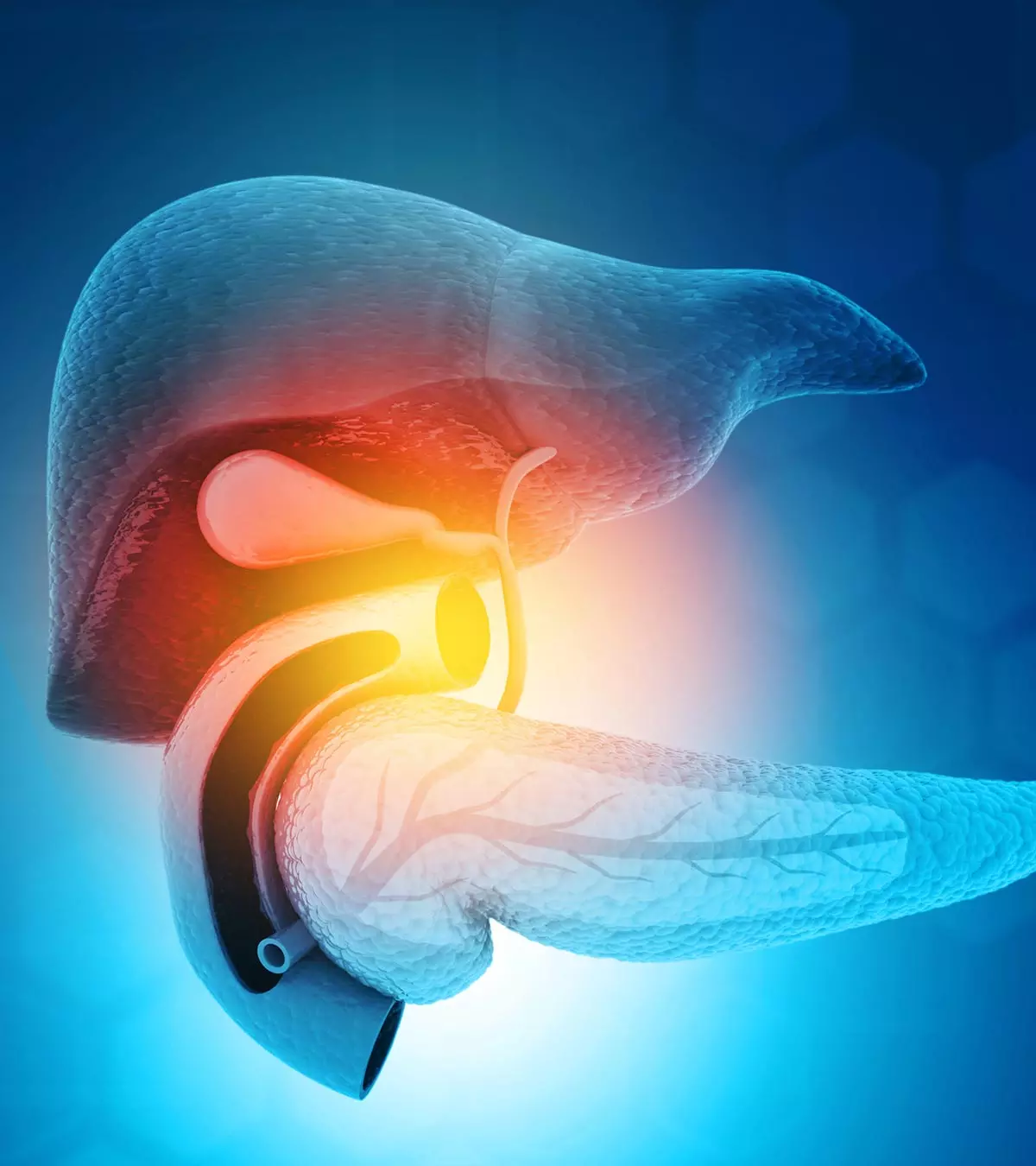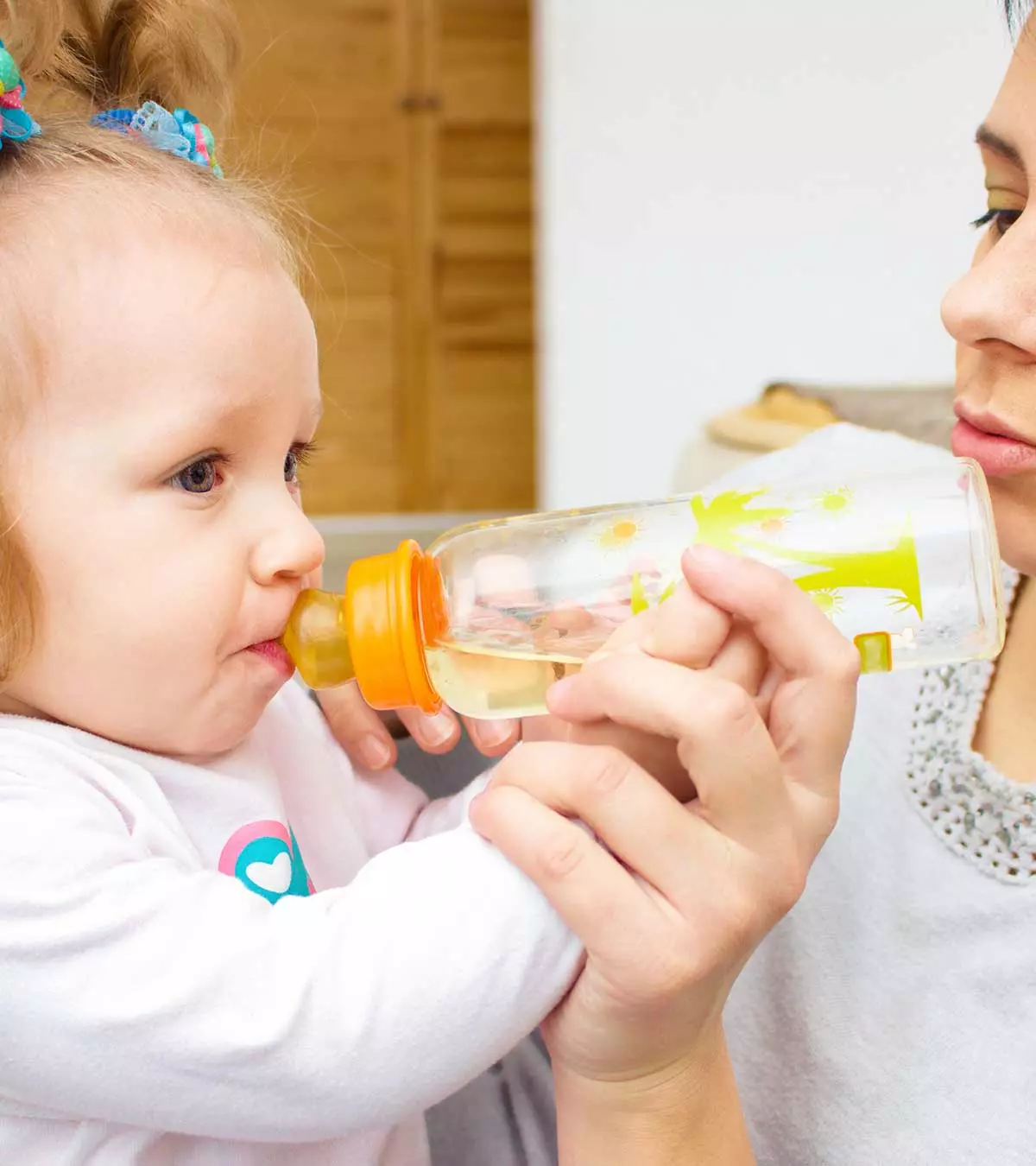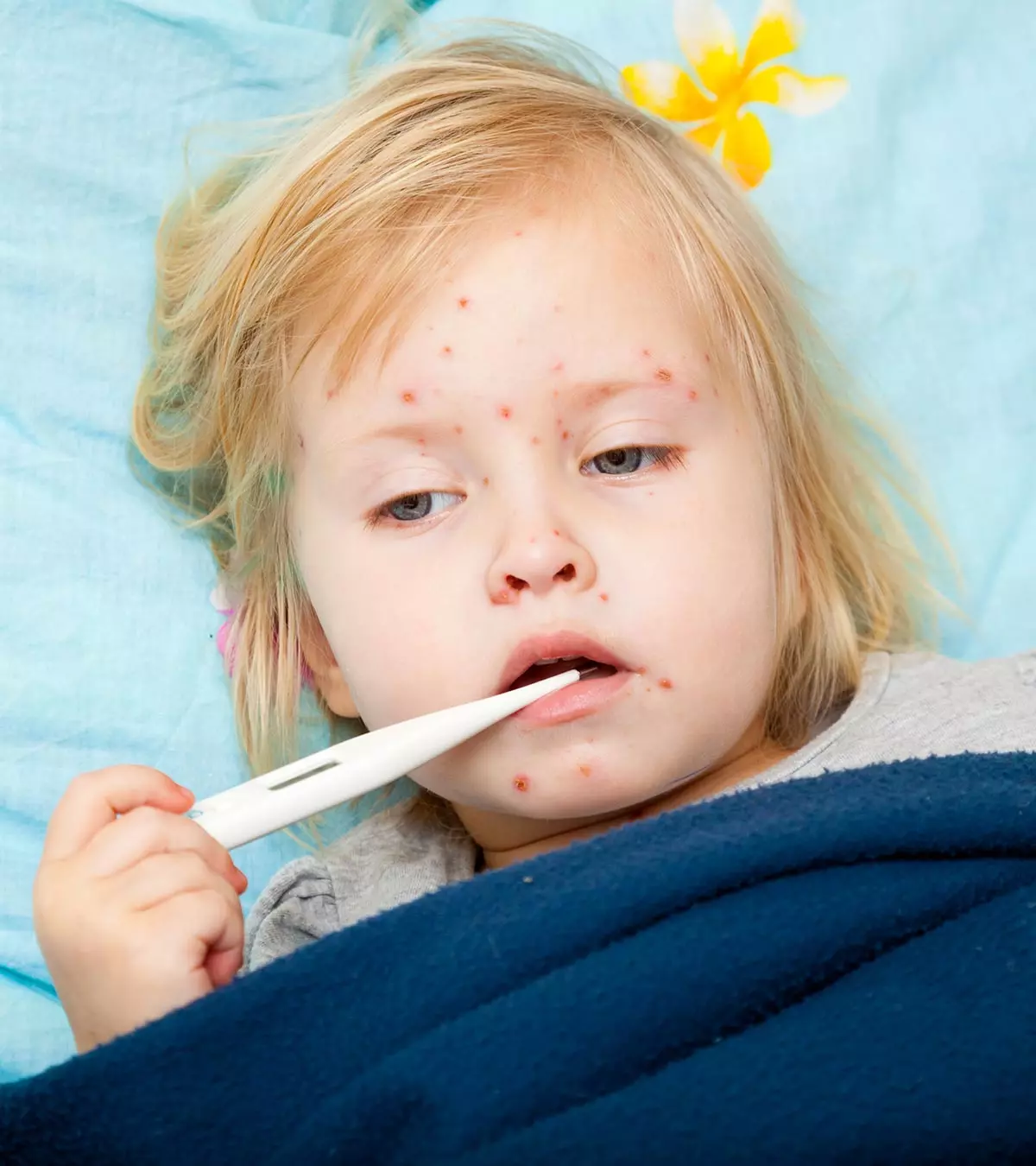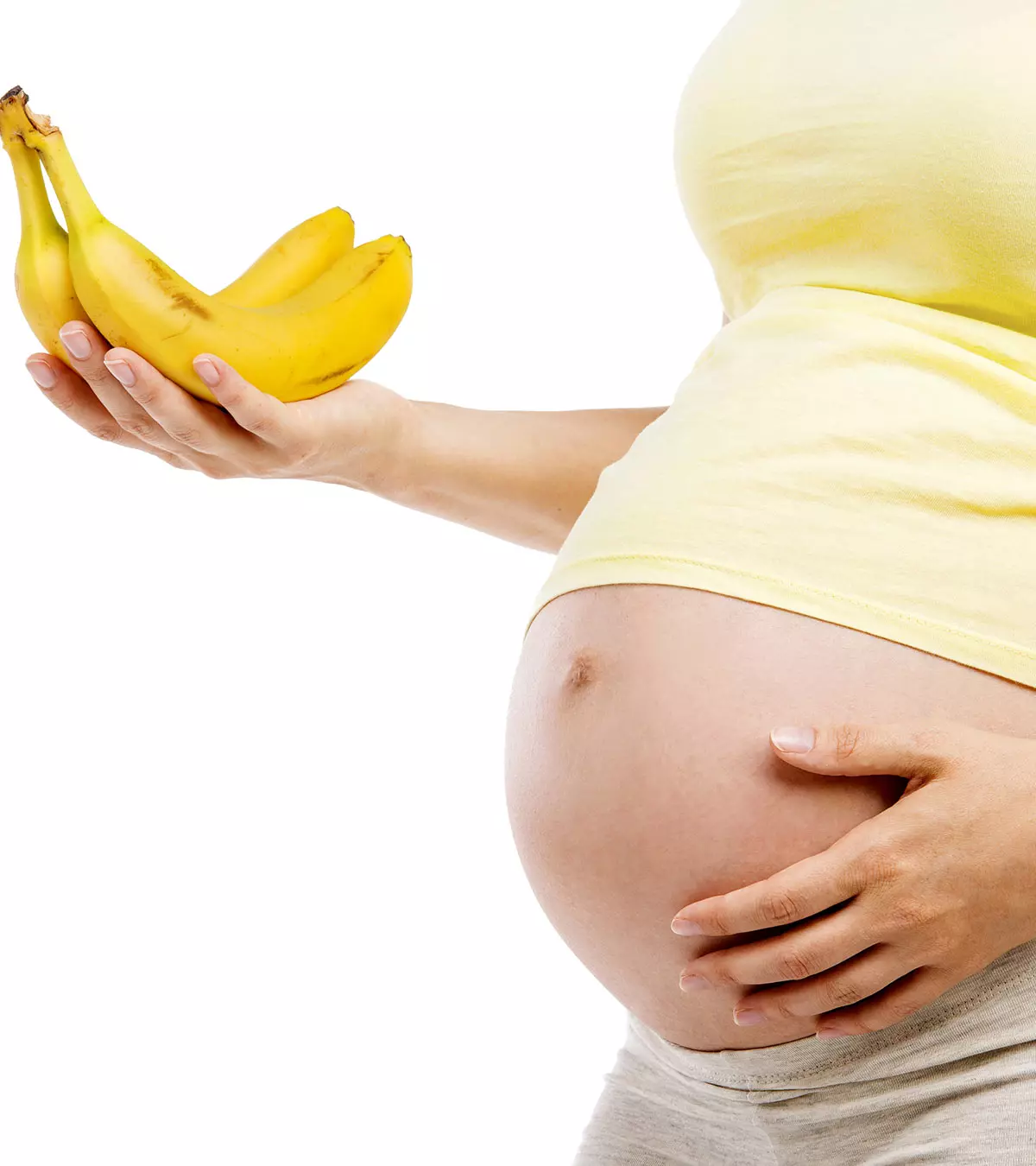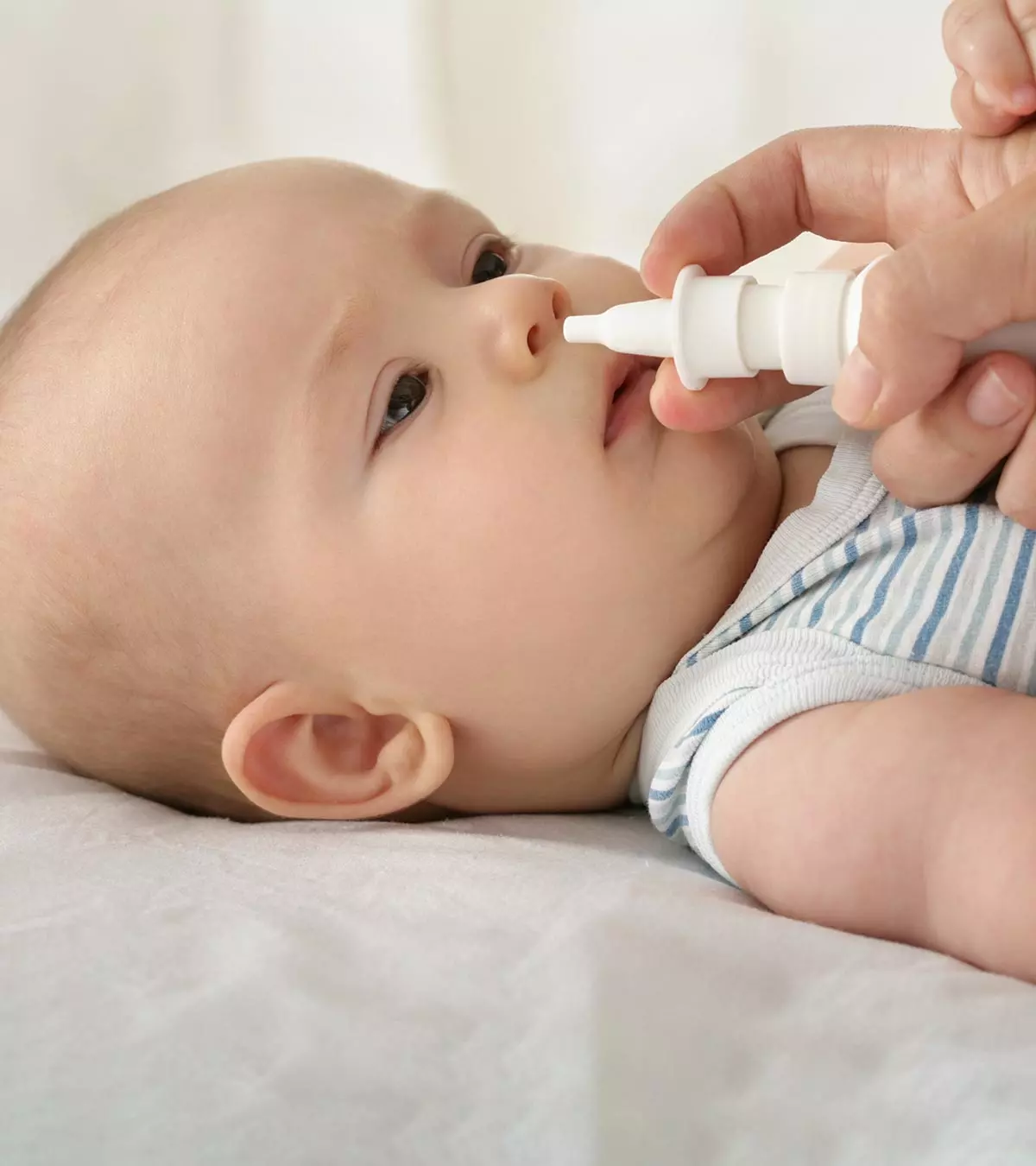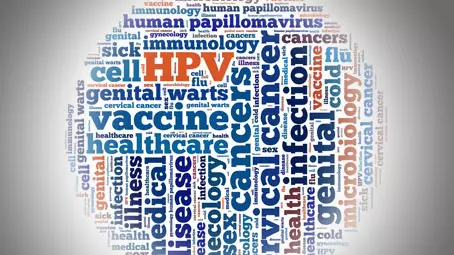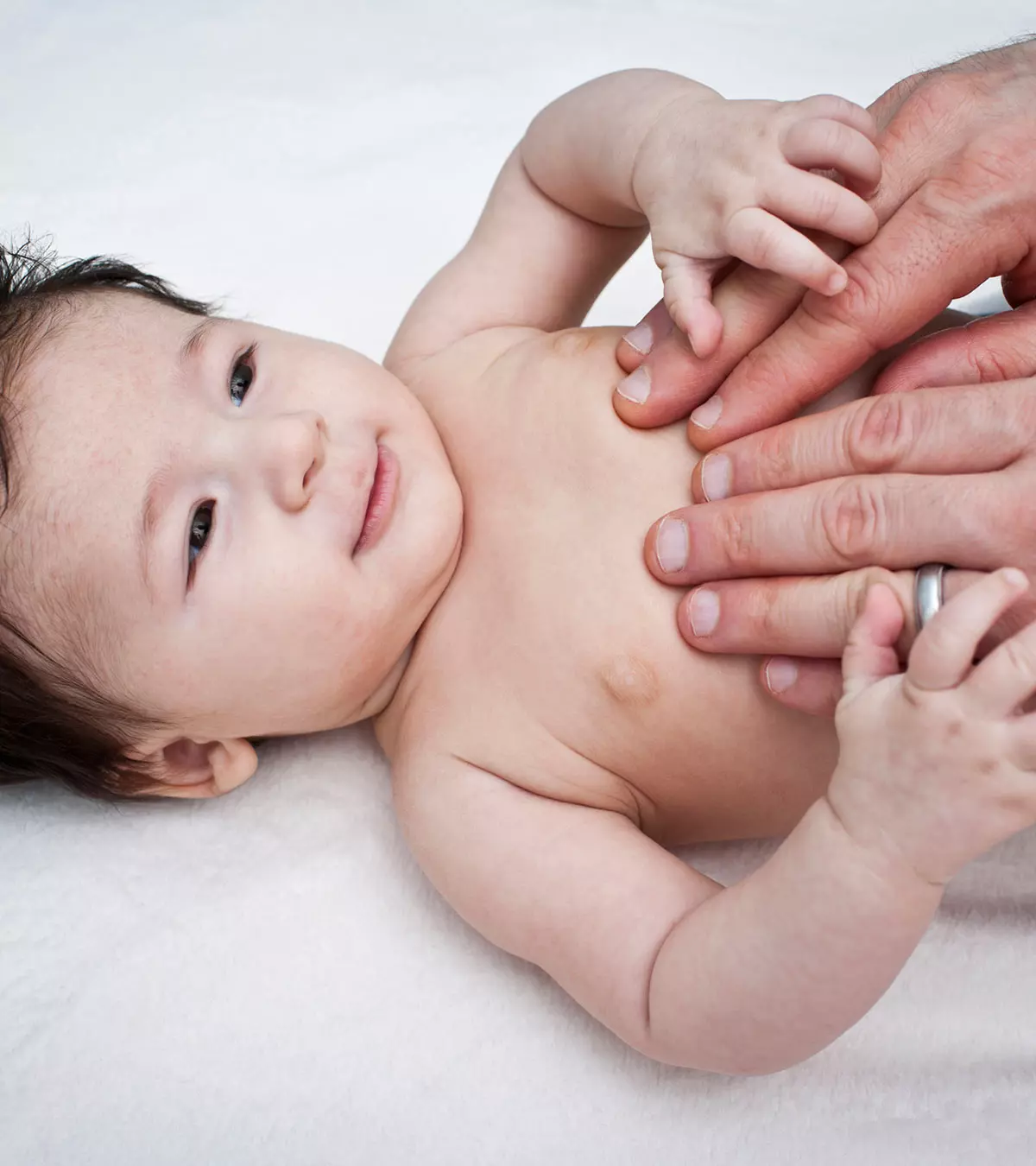
Image: Midjourney/ MomJunction Design Team
Infants are adorable, so it is very difficult to resist kissing a baby. Their cute little eyes, plump cheeks, and tiny hands and feet arouse feelings of affection and a desire to give them tiny pecks. Besides displaying love and joy, kissing and cuddling a newborn are crucial for a baby’s development.

According to Barbara Ardour, patient relations manager at the University Of California Irvine Health, touch plays a vital role in a baby’s development, stimulating both their body and brain (1). It has also been seen that cuddling, just like holding and rocking, helps to foster a bond between parents and babies (2).
Many may be apprehensive about kissing a newborn. Hence, in this post, we share the safety concerns, possible risks, and precautions to take while kissing a baby.
Key Pointers
- Kissing newborns can strengthen their immune systems and improve their IQ levels.
- Parents can kiss their babies on the lips provided they follow certain precautions.
- Maintaining personal hygiene, getting yourself vaccinated, and discouraging others from kissing on the baby’s face are some precautions to follow.
- Kissing babies raises the risk of health issues, such as cold sores, RSV, whooping cough, and cavities.
Is It Okay To Kiss Newborn Babies?

Parents shower their affection and love when they kiss their babies. Acts of affection, such as kissing, hugging, and cuddling let your baby know that they are loved, enhancing parent-child bonding.
Research shows that babies who are shown affection by their moms grow up to be less anxious and more resilient adults (3) (4). When kissed, your baby’s immune systemiA complex network of cells, tissues, and organs that help the body fight infections and protect itself from outside invaders strengthens and their IQ levelsiA set of tests to determine human intelligence, which is ascertained by dividing mental age by chronological age and multiplying by 100 improve.
A Massachusetts Institute of Technology study found that babies can recognize and differentiate relationships based on saliva sharing (through kissing or sharing food). The research shares that saliva exchange can help babies understand who will likely offer support, highlighting its importance as a social cue (5).
 Did you know?
Did you know?Is It Safe To Kiss Your Baby On The Lips?
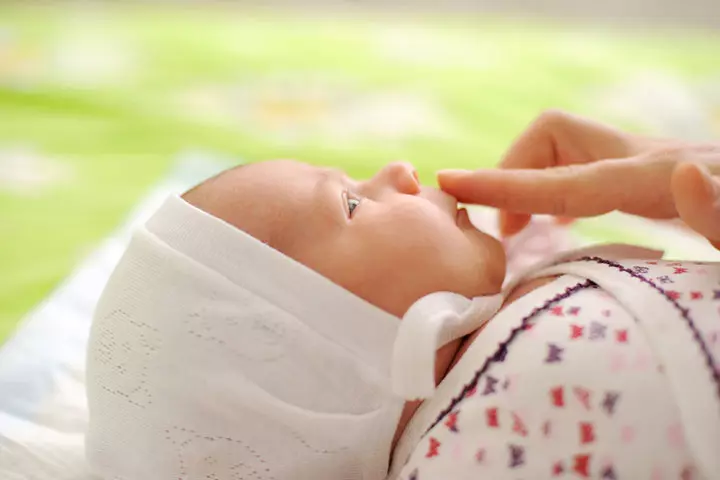
For babies as young as two months old, who aren’t yet using their hands to reach out to things or move around with their little feet, lips are the primary focus. Babies usually start sucking their hands, making cooing sounds, and smiling at people during this time. They multitask their lips for eating, pacifying, and communicating.
The University of Washington’s Institute for Learning and Brain Sciences (I-LABS) published the neural map of two-month-old babies after studying how much neural activity happens in newborns. The study showed that most brain activities occurred when the middle of a baby’s lip was touched.
Post research, the lead author Meltzoff said, “Lips are important for babies. Young babies are lip experts, and their brains reflect this.” (6)
 Expert says
Expert saysSo there you have it; babies love it when you touch or kiss them on the lips while showing love and adoration.
However, it is the responsibility of every parent to take certain precautions when kissing a baby.
Precautions To Take When Kissing Your Baby
“An infant’s immune system doesn’t mature until around two to three months,” says Dr. Sabella. “In those first few months, the immune system — especially cell-mediated immunity — becomes more developed. This is very important in helping a child fight off viruses.” (7)
Board-certified diplomate of the Philippine Pediatric Society Dr. Maria Carmela Villania-Mamauag suggests, “While kissing our little ones establishes an important bond, we should always take into consideration that infants are relatively immunodeficient compared to older children and hence are more prone to contracting various illnesses and infections by mere contact. As parents, we should always protect our children from possible threats of illnesses and politely ask other people to refrain from kissing our babies, as our best step to minimize the possibility of having illnesses.”
Kristi Makusha, a mother, shares her choice to prevent strangers from kissing her premature newborn. She explains, “As a mom, there’s something that really gets under my skin — strangers or even family members kissing my baby. I completely understand the urge — babies are absolutely adorable with their tiny features and smooshy cheeks. But kissing someone else’s infant is a major no-no that could potentially make them very sick.
“I’ll always remember when my husband’s aunt surprised us by kissing our newborn’s face when she came to visit. I was filled with horror! Our child was born early and still had a compromised immune system. Colds, flu, or other sicknesses have the potential to be extremely harmful. I took the aunt to the side and calmly but firmly warned her that she must not kiss the baby at any cost to ensure her safety (i).”
So, it is essential to take necessary precautions while kissing your baby. Here are a few precautions that you can take to keep your baby safe.
1. Maintain personal hygiene

Often, parents are so focused on providing good infant care that they forget to tend to themselves.
For moms and dads, maintaining personal hygiene should be as important as keeping their newborn baby clean and healthy. These are a few safe practices you may follow (8).
- Wash your hands and face before cuddling or kissing your baby. Wash them when you return home from work, when you prepare food, and after using the bathroom.
- Do not forget to wash up after coughing, sneezing, or blowing your nose.
- Scrub your hands with soap for at least 20 seconds while washing them.
- Visit the dentist often and maintain good oral hygiene.
- If you have other children around, be extra cautious while letting them play or kiss the baby during social interactions. Do not neglect their hygiene.
2. Vaccinate your baby
Most infections that spread through kissing are treatable and not very serious. Your baby’s immune system can fight an infection within a few days. Moreover, some vaccines could help build up your baby’s immune system and prevent many of these infections (9).
Infections, such as whooping cough or pertussisiA medical term for whooping cough that involves an infection of the lungs and breathing tubes and chickenpox, which usually spread through physical contact can be prevented using vaccines. Keep in constant touch with your baby’s pediatrician — stay on the baby’s vaccine schedule and don’t skip any of them.
3. Get yourselves vaccinated
Newborn babies do not have a completely developed immune system. To ensure your baby is safe, consider getting yourselves vaccinated, and encourage your family members, nannies, and caregivers to get routine vaccinations (10).
- Ask those who will be spending considerable time around your baby to get vaccinated (11).
- Children around the baby are recommended to get vaccinated for whooping cough.
- Teens and adults are advised to get flu and whooping cough vaccines (12).
4. Do not wear cosmetics while handling your baby
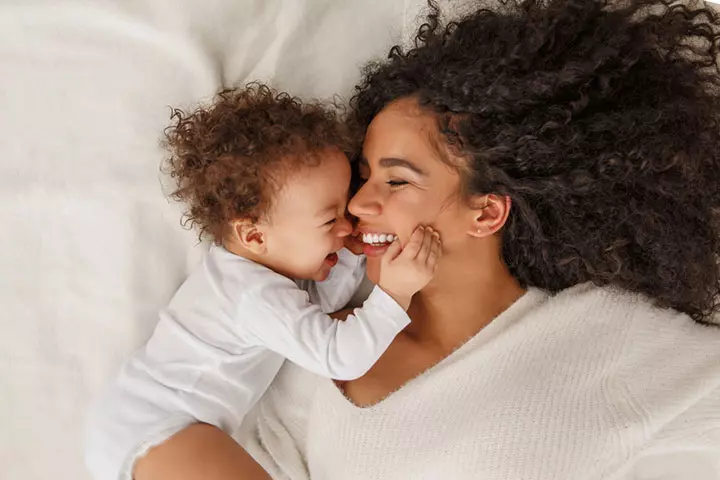
The reasons are obvious. Kissing involves holding the baby intimately and closely, which brings your baby in close contact with your makeup (13).
Most cosmetic products are loaded with chemicals, and even if not, it is not the best choice to cuddle or kiss your baby while you have makeup on.
- Hair relaxers are very dangerous for babies, even if labeled ‘no-lye.’
- Hair coloring products may cause allergic reactions in babies.
- Facial beauty products such as lotions, creams, lipsticks, and eye makeup are non-toxic but can cause diarrhea if consumed by babies.
- Talc, when inhaled or swallowed, may result in chemical pneumonia.
So, it is best to avoid kissing your baby or allowing others to kiss your baby while having makeup on.
5. Avoid having visitors over or going out during the first few weeks
Although everyone is hyped and wants to meet your newborn, it is considered fine to avoid having visitors over the first few weeks. However, as you are likely to have visitors, it’s best to set up some health rules for them.
- Visitors should always wash their hands before holding or kissing a baby.
- People who have recently recovered from the flu or common cold may be asked to visit you after they are completely well (14).
- Individuals with a history of respiratory disorderiA disease that affects the respiratory organs caused due to an infection or smoking tobacco should refrain from kissing the baby.
- Avoid heading outdoors and having visitors over, especially if your baby was born during the winter (14).
- Load up on hand sanitizers, tissues, and wipes and place waste-paper bins around the house.
- Encourage visitors to wear masks if they have a cold or flu symptoms.
 Quick fact
Quick fact6. Discourage others from kissing your baby on the face
It is difficult to tell relatives and friends not to kiss the baby. However, if a visitor or a family member has cold sores or a respiratory infection, politely ask them not to kiss the baby, especially on the lips or the face.
Newborn babies have a weak immune system, which makes them easily prone to viral infections. The first month is pivotal, and therefore, it is best to prevent anyone from kissing the baby on the face (15).
In general, it is a good practice to encourage those who want to kiss the baby to refrain from kissing the face, as viruses and bacteria can easily spread through the baby’s mouth, eyes, or nose (11).
7. Watch out for symptoms
Although some symptoms may seem like a common cold, others may require attention. Coughing during feeding, poor appetite, respiratory distress, excessive crying, fatigue, irregular stools, sweating, and vomiting are some symptoms that need to be taken care of (15) (16) (17).
Possible Risks Of Kissing A Newborn Baby
A survey conducted by The Lullaby Trust with 2,300 new and expectant parents found that 54% would allow friends and family to kiss their newborn, unaware of the infection risks. However, 63% of parents felt uncomfortable asking visitors not to touch their baby, fearing they might offend others or seem overprotective (18).
Dr. Laura Purdy, a US-based board-certified family medicine physician, says, “If people kiss the baby on their mouth, they may get cold, flu, covid, or other respiratory infections. But I think most people kiss a baby on the forehead. In that case, if somebody had oral herpes around the mouth, they could transmit it to the baby. The same thing could be said for impetigo. So, it would mostly be a skin-to-skin transmission at this point.”
1. HSV-1 or cold sores
The Herpes Simplex Virus, type 1 that causes cold sores in grown-ups can also infect babies (19). Herpes form itchy and painful fluid-filled blisters that appear around the mouth and lips (20).
Often when an adult with cold sores accidentally kisses a newborn baby, there is a high chance of infecting the baby. It may take 24 to 48 hours before a blister pops up (21), and sometimes, there could be no symptoms for up to 12 days. Dr. Po-Chang Hsu, MD, from the Boston Metropolitan Area, says, “Some infections, like herpes simplex virus, don’t show symptoms immediately, making them especially dangerous for newborns. A baby might seem fine initially but develop serious complications later. That’s why prevention is key: good hygiene practices and avoiding direct contact with their face or hands can make all the difference.”
Here are some symptoms of cold sores in babies:
- Poor feeding habits
- A fever that can be mild initially (100.4° F)
- Seizures
- Lethargy (22)
It is best to avoid kissing your baby if you have HSV-1.
2. Whooping cough
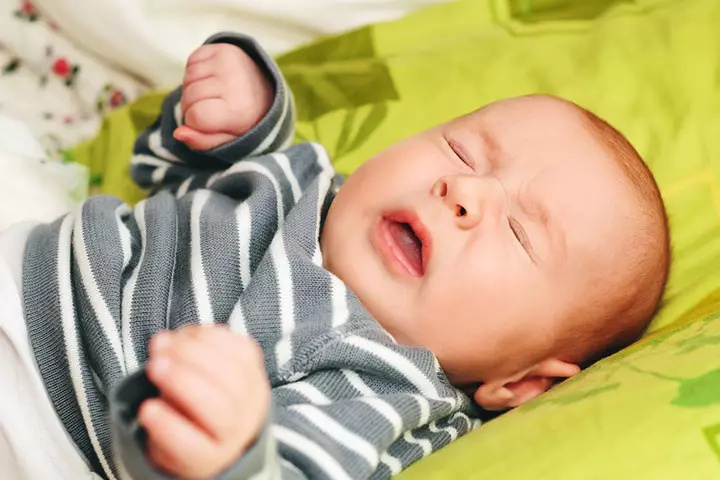
Also known as pertussis, whooping cough is a contagious respiratory infection. It is an airborne disease that can easily infect you if you spend quite a considerable amount of time with an infected person (23).
Kissing a baby on the face when you have a history or symptoms of pertussis can infect the baby since droplets can easily enter the baby’s mouth, nose, or eyes. Some initial symptoms include:
- Runny nose
- Mild cough
- Low-grade fever
- Apnea, a pause in breathing (24)
Note:
Infected people are contagious for up to about two weeks after the coughing starts, and symptoms may not show until 10 to 21 weeks after exposure. Although there are vaccines, none of them are 100% effective, and it is best to exercise caution (23).
 Quick fact
Quick fact3. Kissing disease
Mononucleosis, more commonly known as the kissing disease, causes a sore throat and a fever (25). It spreads when an affected individual kisses a baby on the lips. The transmission medium is infected saliva, and it is best to avoid kissing the baby anywhere on the face (26).
Symptoms of mono may not show for up to two months after being infected. Some symptoms include:
- Sore throat
- Fever
- Fatigue
- Swollen lymph glands in the neck (25)
- Vomiting
There is no specific treatment for mono, and the symptoms may resolve within two months (26).
4. RSV
The respiratory syncytial virus (RSV) is yet another virus that causes difficulty in breathing. It spreads when the baby touches a contaminated surface and then touches their eyes, mouth, or nose. It is also contagious and can infect the baby if they inhale the droplets from an infected person’s nose or mouth. Hence, it is best to avoid kissing a baby if you are infected (27).
Most often, RSV only shows mild cold-like symptoms (28) ; however, the following symptoms may also occur in younger babies.
- Runny nose
- Fever
- Cough
- WheezingiA high-pitched whistling sound that occurs while breathing due to narrow or partially blocked airways
- Apnea (short pauses in breathing)
- Flaring of nostrilsiA sign of breathing difficulty when the nostrils widen while breathing
- A decrease in appetite
- Irritability (29)
Generally, symptoms last for five to seven days (30).
Dr. Purdy opines, “Kissing babies does not cause RSV. However, the exchange of respiratory secretions with somebody who has RSV will cause the disease. So, even if someone doesn’t touch your baby but is around and has RSV, it can be transmitted.”
5. Cavities
A baby’s teeth are tiny and tender, and oral care is of utmost importance. While kissing a baby on the mouth or the lips, cavity-causing bacteria could easily be transferred from your mouth to the baby (31).
That does not mean a mom cannot kiss her baby on the lips; just ensure you make frequent visits to the dentist and maintain good oral hygiene (32).
6. Food allergies
Parents might have no idea about what food their newborn baby is allergic to. And we could never know what someone ate just before they kiss the baby.
Babies may not be consuming food that they could be allergic to directly; however, they are at risk of being exposed to allergens. For example, a sibling with peanut butter on their face might kiss the newborn baby, which could lead to allergies.
Oral hygiene is of utmost importance here. Exercise caution and avoid kissing the baby on the lips soon after eating or having beverages.
How To Avoid Unwanted Kisses To Your Baby?
Establishing clear boundaries around kissing your newborn is crucial for their health and well-being. Here are some tips on how you can prevent people from kissing your newborn:
- Be polite: Politely but firmly express that you prefer visitors not to kiss your baby to avoid potential infections.
- Explain the reason: Briefly explain that newborns have weak immune systems and are more vulnerable to germs and infections.
- Set expectations early: Share your boundaries ahead of time, perhaps in a group message or when arranging a visit, to avoid awkward moments.
- Offer alternatives: Encourage family and friends to show affection in other ways, such as holding hands, hugging, or simply spending time with the baby.
- Use “we” instead of “I”: Framing the request as a shared decision with your partner can help avoid any sense of blame and make it a team effort.
- Set example: Show that you prioritize your baby’s health by respecting the same boundaries with others.
By setting clear and respectful boundaries about kissing, you help protect your baby’s health while maintaining positive relationships with family and friends.
Frequently Asked Questions
1. Can I kiss a newborn baby on the head?
Yes, you can kiss a newborn on the head, and the cases of any infection caused by a kiss are rare. However, staying away from the baby is better if you have a cold, cough, or any contagious disease or infection. You should not let any stranger kiss your baby (33).
2. Can babies get meningitis from a kiss?
Yes, a case was reported where a baby died being kissed by someone with HSV-1. The baby contracted viral meningitis caused by herpes. Although exceptionally rare, there is still some risk for the baby to contract the infection if it comes in close contact with anyone with an infection, cough, cold, or other contagious illness (33).
3. Do babies like it when we kiss them?
Yes, in a study by Sachine Yoshida et al., they observed that touch plays a pivotal role in the preverbal conversation between the baby and parents or guardians. The report further observed that infants as young as four months old can respond to their parents’ touch, i.e., hugs and kisses (34).
As the saying goes, “a coin has two sides,” there are pros and cons to kissing a baby. Although there is a risk of transmittable infections, a baby needs to be loved, cuddled, and kissed. Moreover, babies love being kissed, and it also helps enhance your bond with them. However, you need to be cautious and take certain precautions such as following basic hygiene practices, avoiding visitors during the initial weeks after childbirth, and ensuring routine vaccinations for you and your baby. These precautions will help reduce the risk of contracting infections and allergies due to kissing.
Infographic: Ways To Politely Refuse Or Stop Someone From Kissing Your Baby
Family members or guests sometimes ask to hold the baby and kiss them. In such cases, you might not be sure how to stop them due to social obligations. However, your baby’s health is paramount, and as a parent, you have the right to decide for your baby first. Therefore, here are a few ways to politely refuse or refrain someone from kissing the baby.
Some thing wrong with infographic shortcode. please verify shortcode syntax
Illustration: Risks Of Kissing A Baby Every Parent Should Be Aware Of

Image: Stable Diffusion/MomJunction Design Team
Personal Experience: Source
MomJunction articles include first-hand experiences to provide you with better insights through real-life narratives. Here are the sources of personal accounts referenced in this article.
i. Don’t Kiss the Baby!https://medium.com/illumination/dont-kiss-the-baby-75e05facfabd
References
1. Cuddling is good for babies- and you, too; University of California.
2. Social & Emotional Development for Infants (Birth – 12 Months); Michigan Department of Lifelong Education
3. J Maselko, et al.; Mother’s Affection At 8 Months Predicts Emotional Distress In Adulthood; BMJ Publishing Group Limited (2011).
4. The Power of Kisses; Greater Good Science Center (2010).
5. Babies can tell who has close relationships based on one clue: saliva; Massachusetts Institute of Technology.
6. Pucker Up, Baby! Lips Take Center Stage In Infants’ Brains, Study Says; UW News, University of Washington Institute for Learning & Brain Sciences (I-LABS) (2018).
7. Is Your Newborn Baby’s Immune System Strong Enough?; Cleveland Clinic (2017).
8. How To Keep Your Newborn Baby From Infection; Pediatric Hospitalists at Christiana Care (2013).
9. Reasons to Vaccinate; CDC.
10. New Parents & Grandparents—Which Vaccines Do You Need; Cedars Sinai (2018).
11. Ask the VEC: Keeping a Newborn Healthy Around the Holidays; Children’s Hospital Of Philadelphia (2014).
12. Vaccines for Family and Caregivers; CDC (2019).
13. Personal Care Products; Children’s Hospital of Philadelphia.
14. Healthy Home: Protecting Your Baby from Germs; WakeMed.
15. Newborn Illness – How to Recognize; Seattle Children’s Hospital (2025).
16. Newborn Warning Signs; Nationwide Children’s Hospital
17. Recognizing Newborn Illnesses;American Academy of Family Physicians (2025).
18. Over half of UK parents unaware of the risk kissing poses to newborns;Lullaby Trust.
19. How To Protect Your Baby From Herpes Infection; UT Southwestern Medical Center (2017).
20. Herpes – Symptoms, Diagnosis, Treatment;American Academy of Family Physicians (2025).
21. Herpes Simplex Virus (Cold Sores) In Children; University Of Rochester Medical Center.
22. Herpes Simplex Virus in the Newborn; Department Of Health NY (2011).
23. About Whooping Cough; Centers for Disease Control and Prevention (2025)
24. What Is Pertussis (Whooping Cough)?; American Thoracic Society.
25. Mononucleosis (Mono) (for Parents); KidsHealth From Nemours (2025).
26. MONONUCLEOSIS; Delaware Health And Social Services (2011).
27. Alarming Fact: Your Kiss Can Hurt a Baby; Lifehack.
28. Baby Your Baby – All About RSV; Intermountain Healthcare (2013).
29. Respiratory Syncytial Virus (RSV) – RSV Symptoms;American Academy of Family Physicians (2018).
30. RSV: When It’s More Than Just a Cold; HealthyChildren.org (2019).
31. What Every Parent Needs to Know About Baby Teeth; College Of Dentistry (2017).
32. Oral health behaviors and bacterial transmission from mother to child: an explorative study; BMC Oral Health.
33. The Most Common Childhood Disease Is In The Mouth; Seattle Children’s Hospital (2014).
34. Can A Baby Die From A Kiss? Yes, But It’s ‘Exceptionally Rare’; Indiana University Health
35. Sachine Yoshida, et al.; Infants Show Physiological Responses Specific to
Parental Hugs; iScience (2025)
36. When babies see people swap spit, they know what’s what; The Harvard Gazette
37. Please Don’t Kiss The Baby; Blanchard Valley Health System
38. New Parents and Newborns: Are Visitors OK?; Johns Hopkins Medicine
39. Pertussis (Whooping Cough); Australian Government (Department of Health and Aged Care).
When visiting a newborn, it’s thrilling yet crucial to refrain from kissing the baby. Prioritize hand hygiene and refrain from touching the baby’s face to maintain their well-being.
Community Experiences
Join the conversation and become a part of our nurturing community! Share your stories, experiences, and insights to connect with fellow parents.
Read full bio of Pranjul Tandon
- Dr. Maria Carmela Villania-Mamauag is a board certified diplomate of the Philippine Pediatric Society with a degree of Doctor of Medicine from Our Lady of Fatima University, Valenzuela City and a Bachelor in Science in Psychology from Saint Louis University, Baguio City which was augmented by a year of Bachelor in Science in Family Life and Child development at the University of the Philippines, Diliman, Quezon City.
 Dr. Maria Carmela Villania-Mamauag is a board certified diplomate of the Philippine Pediatric Society with a degree of Doctor of Medicine from Our Lady of Fatima University, Valenzuela City and a Bachelor in Science in Psychology from Saint Louis University, Baguio City which was augmented by a year of Bachelor in Science in Family Life and Child development at the University of the Philippines, Diliman, Quezon City.
Dr. Maria Carmela Villania-Mamauag is a board certified diplomate of the Philippine Pediatric Society with a degree of Doctor of Medicine from Our Lady of Fatima University, Valenzuela City and a Bachelor in Science in Psychology from Saint Louis University, Baguio City which was augmented by a year of Bachelor in Science in Family Life and Child development at the University of the Philippines, Diliman, Quezon City. - Dr. Laura Purdy is a board-certified Family Medicine Physician with over a decade of experience. Previously a performing pianist, she later did her graduation in Psychology (Magna Cum Laude) from Ball State University and attended medical school at the Uniformed Services University of the Health Sciences. After graduating with a family medicine residency at Georgia’s Martin Army Hospital, she joined as a US Army physician.
 Dr. Laura Purdy is a board-certified Family Medicine Physician with over a decade of experience. Previously a performing pianist, she later did her graduation in Psychology (Magna Cum Laude) from Ball State University and attended medical school at the Uniformed Services University of the Health Sciences. After graduating with a family medicine residency at Georgia’s Martin Army Hospital, she joined as a US Army physician.
Dr. Laura Purdy is a board-certified Family Medicine Physician with over a decade of experience. Previously a performing pianist, she later did her graduation in Psychology (Magna Cum Laude) from Ball State University and attended medical school at the Uniformed Services University of the Health Sciences. After graduating with a family medicine residency at Georgia’s Martin Army Hospital, she joined as a US Army physician. 
Dr. Po-Chang Hsu is a medical doctor and medical content expert. He received his medical degree from Tufts University School of Medicine in Boston in 2016. Previously, he did a master’s degree at Harvard University and wrote a thesis on neuroimaging in schizophrenia patients at Brigham and Women’s Hospital. He currently works at Alpas Wellness.
Dr. Po-Chang Hsu is a medical doctor and medical content expert. He received his medical degree from Tufts University School of Medicine in Boston in 2016. Previously, he did a master’s degree at Harvard University and wrote a thesis on neuroimaging in schizophrenia patients at Brigham and Women’s Hospital. He currently works at Alpas Wellness.
Read full bio of Dr. Ritika Shah
Read full bio of Rohit Garoo
Read full bio of Ghazia Shah






